"This was our message to Skopje - we know everything you do"
<a href="//www.b92.net/eng/news/politics.php?yyyy=2017&mm=08&dd=21&nav_id=102119" class="text-link" target= "_blank">Serbia's decision to withdraw its embassy staff</a> from Macedonia is in fact "a message to Skopje."
Tuesday, 22.08.2017.
12:54
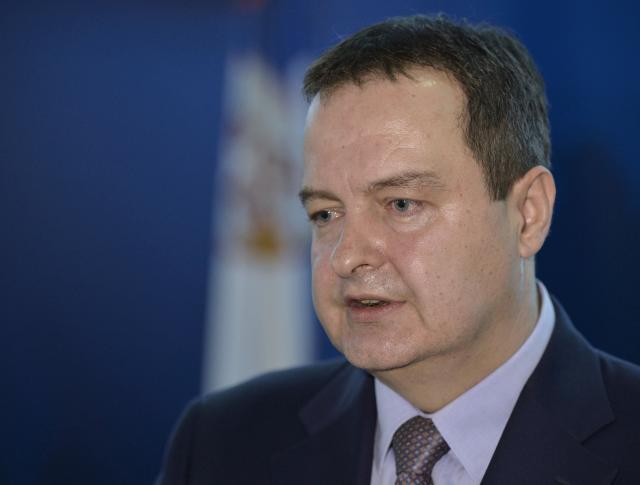
"This was our message to Skopje - we know everything you do"
"That's something not done among friends," Dacic said referring to Skopje's actions, and added that despite this, Serbia was seeking "good relations with all countries in the region, for the sake of peace and stability."With that, he told TV Pink, Serbia wants to "calm the newly created situation with Macedonia." Dacic remarked that "the situation" emerged not on the basis of assumptions, "but on the unequivocally established actions that speak of increased offensive activities towards Serbia."
Dacic said that "everything that happened in the last days will be discussed with our diplomats, but also with our colleagues in Macedonia." He announced that Serbian President Aleksandar Vucic will talk to Macedonian Prime Minister Zoran Zaev on the phone tomorrow (Wednesday), while he would speak with his Macedonian counterpart Nikola Dimitrov.
Serbian Prime Minister Ana Brnabic will also have the opportunity to meet with Zaev at an international gathering in the coming days, Dacic said.
"We are trying to talk, but to protect the interests of our country and not to endanger peace and stability in the region. What we are talking about - let everyone be clear on this - is nothing that would fall under the scope of some assumptions, instead there are unambiguously established actions that speak of very enhanced and extremely offensive activities towards the institutions and the Republic of Serbia, and the staff of the embassy in Skopje as a whole," he said.
It is very important, Dacic continued, "that we know in what environment our staff will work in the embassy in Skopje."
"We must learn some lessons from all this, about how we organize ourselves," Dacic said, noting that Serbia "has not undertaken and is not undertaking anything against Macedonia all these years."
Serbia, he said, has acted very correctly and constructively, and did not interfere in Macedonia's internal affairs, "even during those turbulent times when they had daily protests."
"There is nothing on the basis of which it could be determined that Serbia has ever done anything that would go against the interests of Macedonia. On the contrary, we had in mind that this was a republic of the former Yugoslavia, whose continuity Serbia extended with Macedonia and other countries," the minister said.
He recalled that Macedonia "has a problem, and definitely has not resolved the issue regarding the state's name."
Commenting on the Macedonian government's statement that it would be guided by the views of the majority of EU member states in regard to Kosovo's candidacy for membership in UNESCO, Dacic noted that, if Serbia shared the position of the European Union, "it could certainly annul its previous decision, and recognize Macedonia under the name under which it sits in Brussels - and that is FYROM (Former Yugoslav Republic of Macedonia)."
"We are very clear when we say that we want good good neighborly relations with Macedonia, but these relations must be based on the principles of reciprocity. And that means, as you act toward us, so we will act toward you," said Dacic.
According to the minister, "there is nothing is strange in the fact that Macedonia will support Kosovo's membership in UNESCO" - but he then "quoted German Chancellor Angela Merkel" to point out that "that's just not done among friends."
Without wishing to reveal any details, Dacic pointed out that Serbia would "never act in the way it did, had there not been for the unequivocally established facts."
Although, he continued, there had been intelligence activities in the past, "an order came recently to ramp up these activities." He said he was "not worried about his phone being eavesdropped on" - because he is "saying the same things in public and on the phone."
"But this can have serious consequences on our state institutions, because the goal of such activities is to come up with all sorts of false accusations about Serbia representing a threat, and wanting to stage some sort of conflict in Macedonia," Dacic said, adding that the truth was "completely the other way around."
Serbia, he stressed, has been "expressing friendly relations, even to our detriment - and we did nothing to influence a change in that relationship."
He repeated that Serbia recognized Macedonia under the name "the Republic of Macedonia" because that was "important to them and their interests."
But, he added, for Serbia, the issue of its territorial integrity is important - and that is the issue of Kosovo.
"The whole of Europe officially lists them as FYROM. By recognizing them under a different name, we have practically poked our friends the Greeks in the eye, and this is harmful to our state and national interests," explained Dacic. For, he repeated, the state must protect its interests.
Apparently referring to opposition politicians, Dacic addressed the issue of "those who spoke from some beaches and some destinations on this occasion, interrupting for a moment their vacations to write something on social networks."
He pointed out that "as many as 86 countries had recognized Kosovo's unilaterally declared independence while they were in power, while in the last five years only 20 countries did so."
Dacic explained that it was not a rule that a countries that has recognized Kosovo's independence also supports Pristina's bid to join UNESCO, and cited Poland, Japan, the Republic of Korea, Peru, Egypt, and Swaziland as examples.
Dacic then showed a map and pointed out that the regions of those countries have not recognize Kosovo are larger, and remarked that Serbia "should pay full attention to these countries."
That is why, said Dacic, "there is no room for criticism from those who spoke on social networks yesterday and issued press releases to call Serbia's foreign policy amateurish and charlatan-like."
"The result of Serbia's foreign policy is clear: 86 countries recognized Kosovo's independence from 2008 until 2012, while in the last five years only 20 countries did so," he said.
He recalled that Macedonia recognized Kosovo at the end of 2008, when the Democratic Party, including Vuk Jeremic, was in power in Serbia, and that "our reaction then was only to expel (Macedonia's) the ambassador."
"And why didn't we decide then to change the name under which we recognized Macedonia, because it was harmful to our national and national interests?," Dacic asked. Serbia cannot be silent to anyone's attempt to "vent on it" he said - while "it will remain written" whether "our decisions and reactions" have had an effect.
"It will not be easy for the authorities in Macedonia, either, to know that we know about everything that's been going on, and in which, there is no dilemma, the foreign factor has been involved. So, we know everything. We know what they have decided, what they are doing, and what they will do," the minister said, adding that "Serbia's goal is not to give details because we do not aim to fight 'special wars' but to have good neighborly relations."
Dacic also said that he received "an interesting reaction from a Western country" to Serbia's decision to withdraw its embassy staff in Skopje, when he was told, "Well, that's what everyone is doing."
"He wanted to say that this was normal. It is not normal," Dacic was clear, pointing out that Serbia was "doing nothing against Macedonia."
"That's why it isn't normal. Macedonia is facing no danger from the north (from Serbia). We are not denying their language, we have recognized them under their constitutional name, we are not denying their nation - the fact that the Churches have a problem is not a matter of the state - and we do not have any territorial aspirations," Dacic said. He then repeated that this was "not done among friends - all the more so since our peoples are very close."
Commenting once again on "those who criticize the decisions of the government" - which, as he pointed out, is acting "very responsibly in order to protect the interests of the country" - Dacic said that such decisions should be left out of the realm of "politicization."
"It's easy to tweet, write press releases and leave likes on social networks, from distant warm seas," Dacic said, adding that he himself has not taken a vacation "in six years."















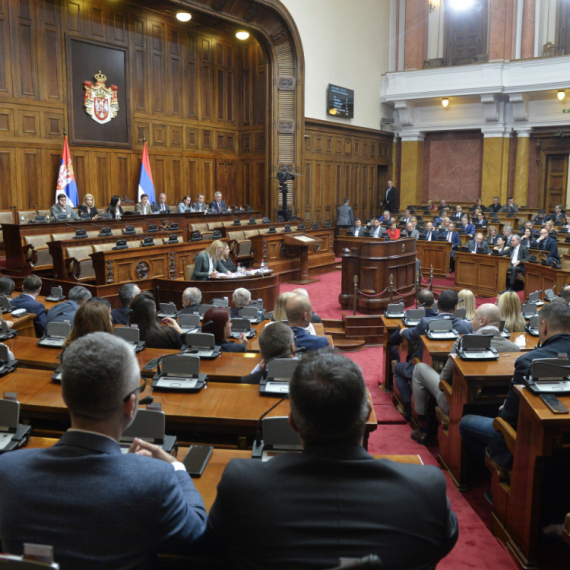
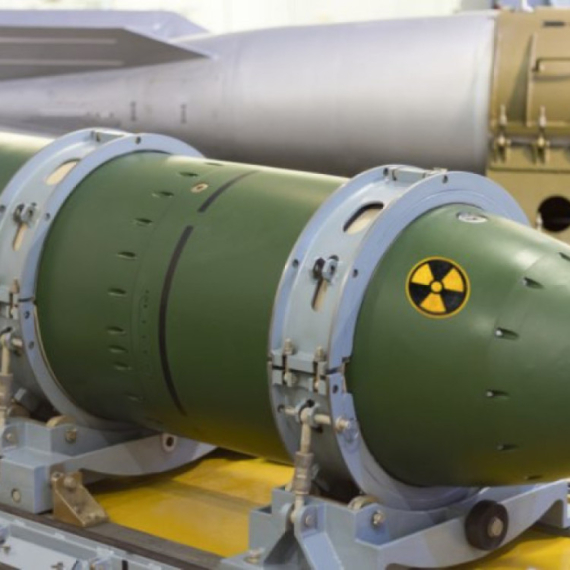
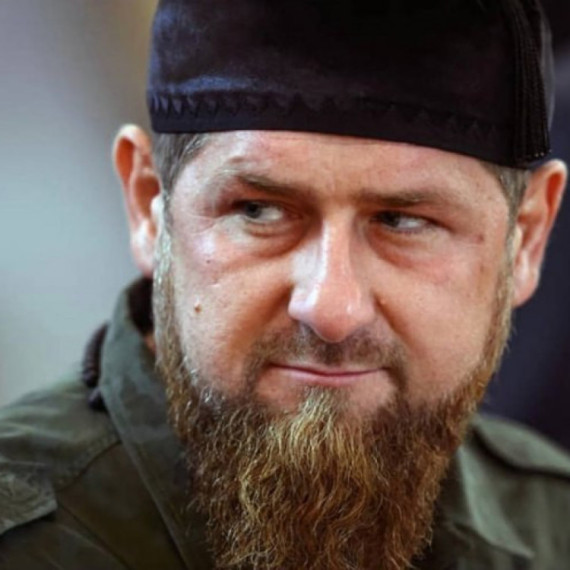



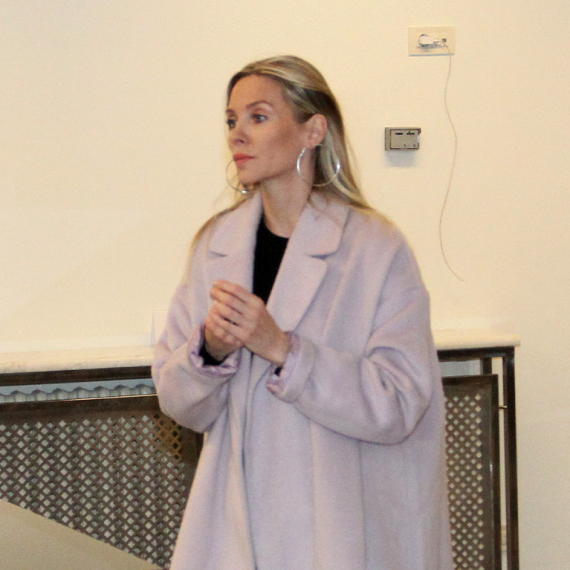



















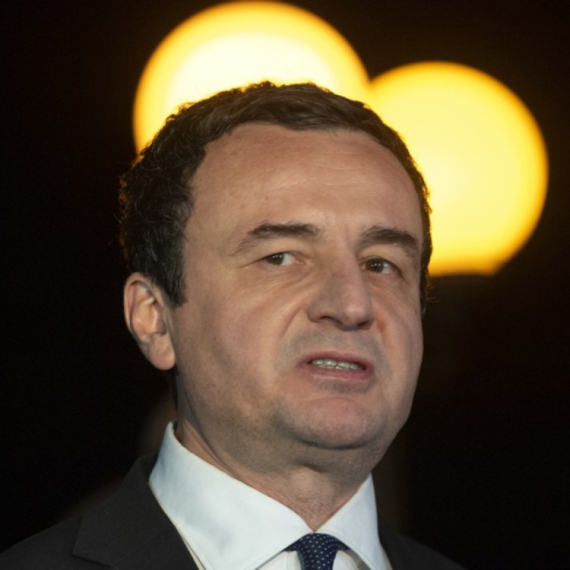







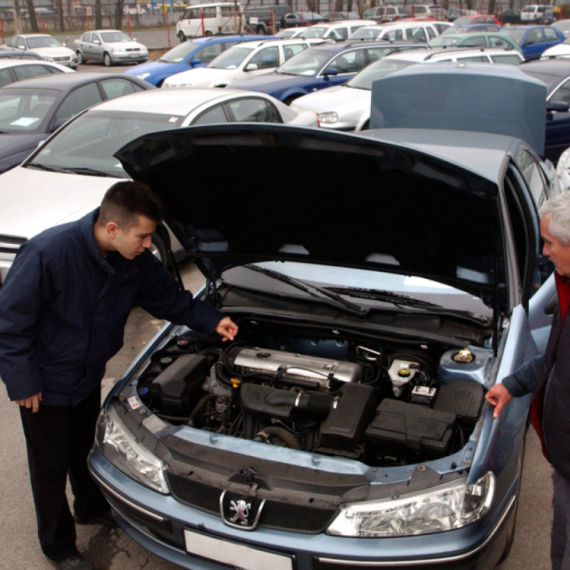







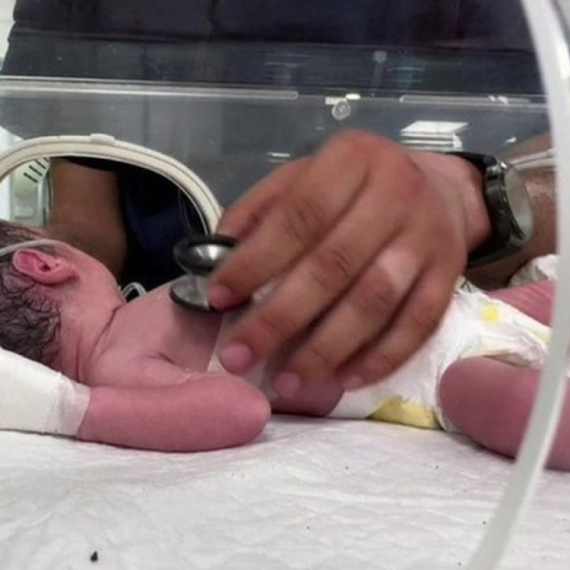

Komentari 20
Pogledaj komentare